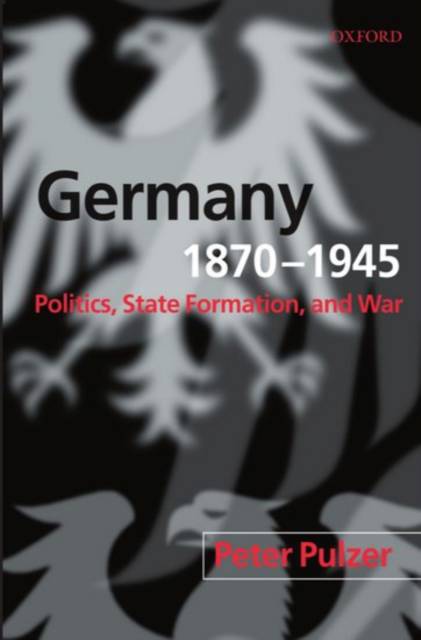
Door een staking bij bpost kan je online bestelling op dit moment iets langer onderweg zijn dan voorzien. Dringend iets nodig? Onze winkels ontvangen jou met open armen!
- Afhalen na 1 uur in een winkel met voorraad
- Gratis thuislevering in België vanaf € 30
- Ruim aanbod met 7 miljoen producten
Door een staking bij bpost kan je online bestelling op dit moment iets langer onderweg zijn dan voorzien. Dringend iets nodig? Onze winkels ontvangen jou met open armen!
- Afhalen na 1 uur in een winkel met voorraad
- Gratis thuislevering in België vanaf € 30
- Ruim aanbod met 7 miljoen producten
Zoeken
€ 71,95
+ 143 punten
Omschrijving
Germany, 1870-1945 deals with the three attempts to build a German nation-state between 1871 and 1945, and the reasons for their failure. Haunted by the specter of the abortive liberal-national revolution of 1848-49, German politicians sought a series of solutions, none of which found a constitutional consensus, and two of which ended in military disaster. Pulzer looks at the two solutions imposed from above, those of Bismarck and Hitler, and the stalled revolution from below, that of the Weimar Republic. He examines the external influences on Germany's political development, such as the European state system and the Versailles treaty of 1919, but the main focus is on the tension between democratic and authoritarian forces, the series of unsatisfactory constitutional compromises, the main institutions of government, and the emergence and influence of parties and interest groups.
Specificaties
Betrokkenen
- Auteur(s):
- Uitgeverij:
Inhoud
- Aantal bladzijden:
- 192
- Taal:
- Engels
Eigenschappen
- Productcode (EAN):
- 9780198781356
- Verschijningsdatum:
- 17/04/1997
- Uitvoering:
- Paperback
- Formaat:
- Trade paperback (VS)
- Afmetingen:
- 200 mm x 133 mm
- Gewicht:
- 229 g

Alleen bij Standaard Boekhandel
+ 143 punten op je klantenkaart van Standaard Boekhandel
Beoordelingen
We publiceren alleen reviews die voldoen aan de voorwaarden voor reviews. Bekijk onze voorwaarden voor reviews.











